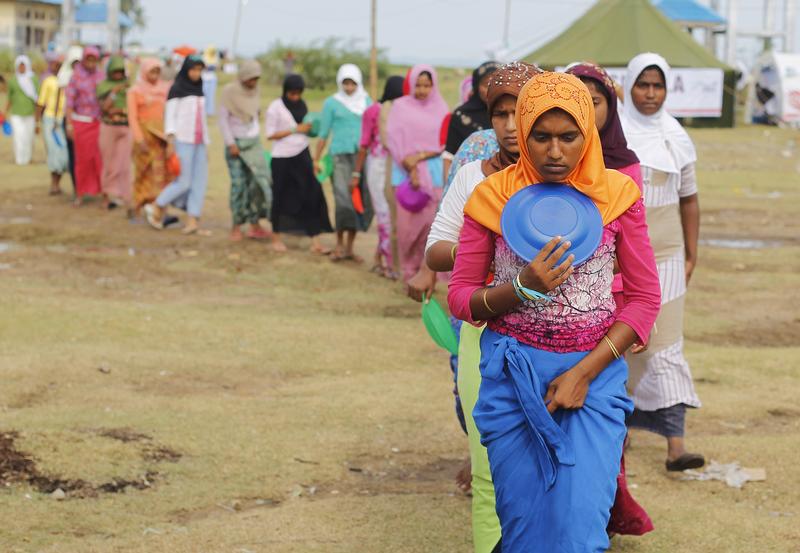More than half of Rohingya Muslim girls who fled violence in western Burma ended up becoming child brides, according to a United Nations survey that also showed widespread domestic abuse.
Since 2012, violence and communal clashes in Burma’s Arakan State have forced more than 168,000 members of the ethnic Muslim Rohingya minority to flee, including a rising number of women and girls, according to the UN refugee agency UNHCR.
In a survey of 85 Rohingya women and girls who have fled to India, Malaysia and Indonesia, UNHCR found about 60 percent married before the age of 18. The average age that they gave birth to their first child was 18.
One in every three women and girls also said they were victims of domestic violence, according to UNHCR’s 2016 Report on Mixed Movements in Southeast Asia.
“We generally counsel them about their options and, if they agree, refer them to a partner or shelter that cares for vulnerable women,” UNHCR Asia spokeswoman Vivian Tan told the Thomson Reuters Foundation.
The growing number of Rohingya women and girls fleeing persecution in Buddhist-majority Burma has raised concern that they may be vulnerable to human trafficking, sexual exploitation and child marriage, activists say.
UNHCR said the interviews with the 85 women in its latest report were to assess “continuing vulnerabilities” they face.
There are about 8,000 Rohingya women and girls aged between 14 and 34 in India, Indonesia and Malaysia — the countries where the study was carried out late last year.
The findings showed while the majority of the Rohingya girls in India said they chose their husbands, 76 percent in Malaysia said their marriage was arranged by families or brokers, giving rise to fears of human trafficking.
[related]
Rights groups said they have seen an increase in the number of child brides among Rohingya refugees as violence in Arakan worsened, with human traffickers selling girls to Rohingya men as brides.
As Rohingya refugees are denied formal employment in many of the host countries, only 7 percent of the women polled said they were earning an income, even though two-thirds said they desired their own income.
The plight of the Rohingya hit international headlines again in recent months after Burmese security forces were accused of carrying out mass killings and gang rapes during their campaign against Rohingya insurgents. The military has denied the accusations.



